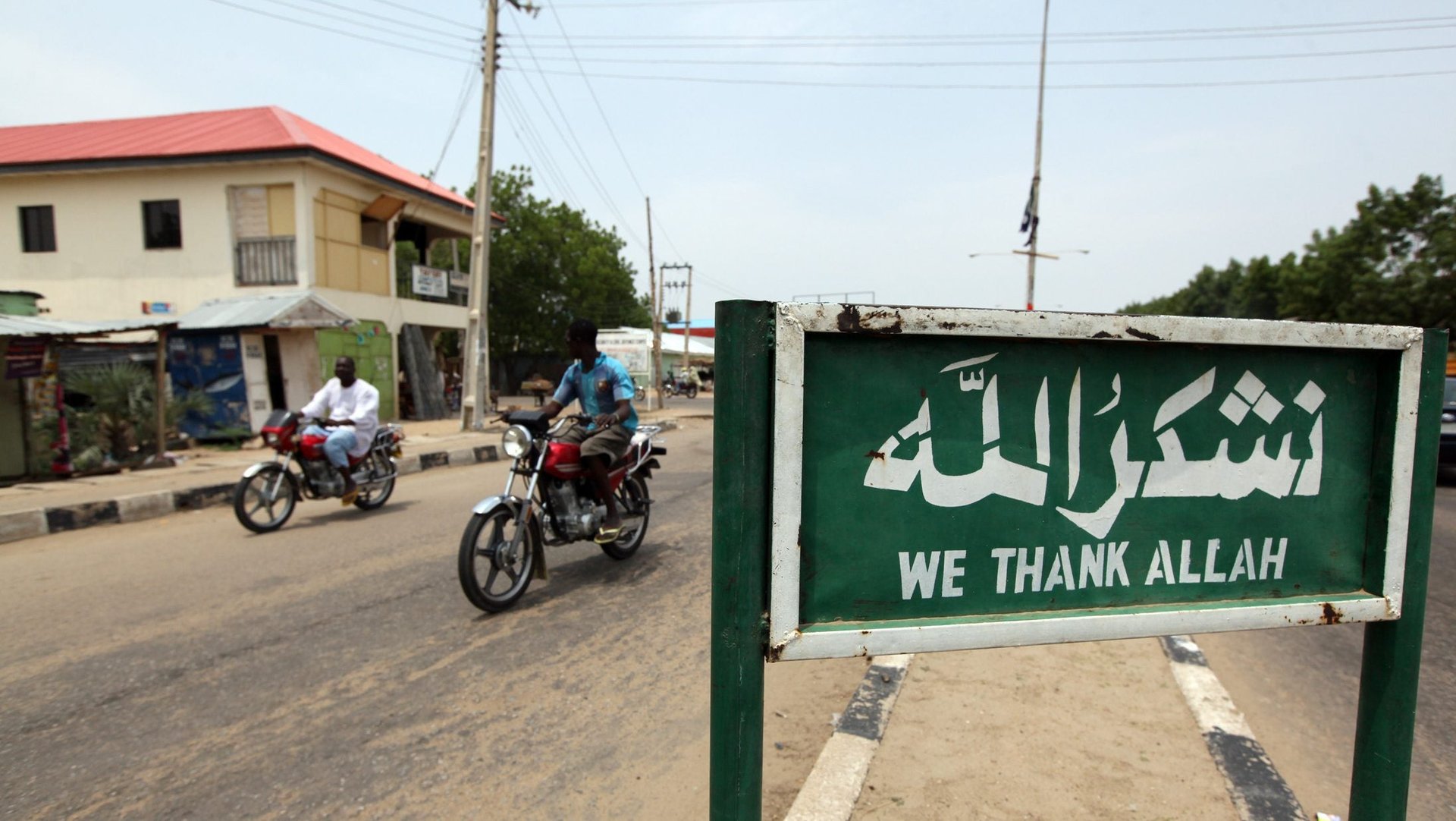Nigeria has discovered oil in Boko Haram’s heartland—but that isn’t necessarily good news for locals
In December 2016, the Nigerian Army raided and assumed control of Camp Zero, the fort of Boko Haram terrorists in the heart of the dreaded Sambisa Forest, a 6,000 sq.km swathe of land in Nigeria’s northeastern state of Borno.


In December 2016, the Nigerian Army raided and assumed control of Camp Zero, the fort of Boko Haram terrorists in the heart of the dreaded Sambisa Forest, a 6,000 sq.km swathe of land in Nigeria’s northeastern state of Borno.
During that raid, it captured Bello Danhajiya, deputy to one of Boko Haram’s factional leaders, and retrieved the flag and Qu’ran of Abubakar Shekau, the helmsman of the rival faction, which it later presented to president Muhammadu Buhari.
In addition, Nigeria’s petroleum resources ministry also announced in that month the discovery of crude oil in vast quantities in Borno state, the home of Boko Haram. A thirty-year old obsession of the Nigerian National Petroleum Corporation (NNPC), the search for oil in the Lake Chad Basin began under president Muhammadu Buhari’s time as petroleum minister in the late 1970s and has gulped over $340m.
“Our doggedness culminated in the discovery of oil in new frontiers—Lagos and Borno”, explained Jamila Shua’ra, permanent secretary at the ministry of petroleum resources.
The announcement, which came on the heels of a bill in Nigeria’s National Assembly to establish a proposed North East Development Commission, has raised hopes of increased economic activity in the state and the entire north-eastern region. Long before the crisis, Maiduguri, the state capital was a commercial hub with traders hauling goods to the neighboring Chad and Cameroon and even as far as Libya.
With over 6.9 million hectares of arable land, Borno was the country’s third largest employer in the agricultural sector but many farmers have been displaced while their farms have been either burnt or looted by the insurgents. Crude oil would bring along with it increased economic activity, including unskilled labor for many among the teeming population.
“People in my state and the North in general are happy about oil being found and are waiting for what it will bring”, says Borno-born writer Mark Amaza, echoing the predominant belief of other locals about the announced discovery.
But further south in the Niger Delta region, the main source of Nigeria’s oil production and revenue, the discovery of oil more over 60 years ago has not necessarily delivered sustainable economic development. Not even the oil boom that came two decades after the first oil well was discovered in 1956, or the establishment of the Niger Delta Development Commission in 2000 has accelerated development in the region.
Rather than transforming to a promised land flowing with milk and honey, the creeks have become a health hazard and security nightmare. Angered by years of neglect and environmental pollution stemming from the operations of oil companies which have drained the sources of livelihood of many local people, some agitators for resource control have turned aggressors against the federal government and oil installations in the area.
The gift of the Niger Delta has become its curse and the northeast could find itself at the same crossroads soon enough.
In the interim, there are concerns that the announcement itself could be a ruse. “For one, we don’t even know what company supposedly made this discovery”, says Manji Cheto, risk analyst at global advisory firm Teneo. “In the absence of important details such as the exact location of the alleged oil discovery, the companies behind it, the potential reserves, news about oil finds in Borno state is best treated with a healthy dose of skepticism.”
“As things stand, there is absolutely no basis for authorities to refer to Borno state as an oil-producing state; this is simply factually incorrect,” says Cheto.
However, Idang Alibi, a spokesman for petroleum ministry confirmed the discovery to Quartz. “The NNPC has awarded the contract for seismic data acquisition of over 500 sq.km 3D seismic data to the Integrated Data Service Limited (IDSL), a subsidiary of NNPC and Bureau for Geophysical Prospecting, a subsidiary of China National Petroleum Corporation. Both companies have mobilized and commenced work in the affected areas.”
In evading requests to name the specific areas, the ministry’s alibi seems to be that of protecting residents of those places from presumed security implications. But the spokesman’s clarifications neglect to mention stakeholders in the process, a breakaway from a tradition of oil companies announcing their discoveries to raise more capital and to comply with corporate governance statues.
This has heightened speculation that the announcement could be the perfect front to encourage public buy-in for a wild goose chase with political or ethnic undertones. Dolapo Oni, head of energy research at Ecobank Nigeria agrees. “I think until proper evidence of this discovery is provided, such as an oil well drilled and core samples tested to show, even if not commercial, there is some hydrocarbon presence, the announcement may be disregarded.”
Given the length of time already expended in the search and the terrain of the largely sahel savannah area, further exploration could be a further waste of government resources. The best-case scenario is finding small deposits trapped in some undeveloped reserves; these make exploitation quite unattractive for oil companies, given the cost-intensive operations required.
All that effort and funding could instead be channelled into deep water exploration, says Oni. “I have always advocated that more attention be paid to passing the Petroleum Industry Bill and encouraging IOCs (international oil companies) to explore our deepwater potential which has seen very little exploration since the 2000s”, he says.
In the meantime, the people of the northeast wait in anticipation of the economic development they imagine will come now that they ‘have oil’.